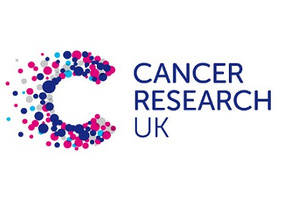Donors who already support your charity on a significant scale could be your best legacy prospects. Not only are they already aligned with your goals and values as you strive to make a difference, but they have the propensity, affinity, and capacity to help you reach your charity’s vision.
When embarking on the journey towards creating high-value legacies, I would recommend starting with thorough research and also examining your own database.
By conducting research to understand motivations and barriers to legacy consideration, you can design effective strategies and workshop solutions tailored to individual needs.
Analysing your donor base to identify supporters who this would be an appropriate ask for is crucial to knowing what commitment you would need to make to such a project and to be able to build a bespoke cultivation plan.
To succeed in a project like this and see early success, fundraiser education also plays a crucial role. An understanding of tax benefits, family considerations, and alternative giving vehicles is needed when talking to higher-level donors. Providing this and other training to fundraisers will build their confidence in having those all-important legacy conversations, whilst relying on legal experts for advice.
Stewardship essentials
Stewardship is also key in nurturing these valuable relationships if you want to transition to blended giving (a gift that involves a proportion given now, and in the future). My advice would be to consider this and know your stewardship and recognition plan for these donors before making your ask. This will ensure you know if this stewardship will need to change and if what you are offering is appropriate for the level of gift.
Other stewardship tips include providing real-life examples, which can empower potential donors to make informed decisions about their legacies and creating a culture of long-term commitment by consistently demonstrating impact and showing gratitude for their generosity.
It’s also important for legacy and major donor teams to work together to ensure that stewardship is appropriate and continued, particularly where someone might reach an age where they stop giving in their lifetime but retain a legacy gift.
Talking transformation
There is one key distinction between philanthropist legacy pledgers and those who are less wealthy. Richer donors are cause-focused and want to see transformational results from their giving.
This can be a challenge for many legacy fundraisers, who are focused on the mass market and general public needs. Adjusting fundraising strategies to better align with these donor priorities can help fundraisers effectively engage and cultivate relationships with this distinct group of philanthropists.
My tip would be to take some time within the charity to translate what a transformational legacy gift could look like and could do for your cause. This may take some thought and the involvement of senior stakeholders. You will need to consider what the philanthropist you have in mind to approach might be interested in, so you can align your plans. Perhaps involving your donor in this process and embarking on the journey together could provide rewards for both of you.
By involving a wider range of stakeholders in the process, you will also find better solutions and create an even more inclusive and impactful outcome. Recent research undertaken by Legacy Futures and Unicef UK reaffirms the belief that the principles of trust and transparency, stewardship, recognition, and impact hold immense value for all legacy pledgers, regardless of their financial status, helping to cultivate a lifelong strong relationship.
Emphasise and embrace the opportunity
However, a short-term culture or siloed approach within an organisation can impede efforts towards high-value legacies. It is essential to identify these obstacles early on and implement solutions that foster collaboration across departments. Emphasising the opportunity that is available now and encouraging as many colleagues as possible to embrace this form of giving will greatly benefit you.
By understanding motivations, addressing barriers, providing clear mechanics for giving, nurturing stewardship relationships, and overcoming internal challenges, we have the power to make a lasting impact that will shape the future of our charities for decades to come. And, by dedicating some of our time and efforts, we can leave behind our own personal legacy that will positively affect the organisations we work with.
Related Articles












